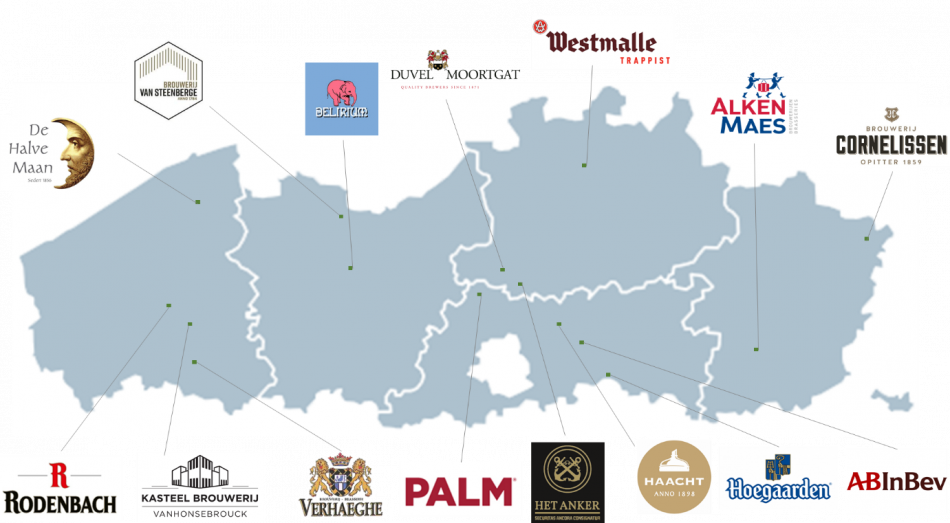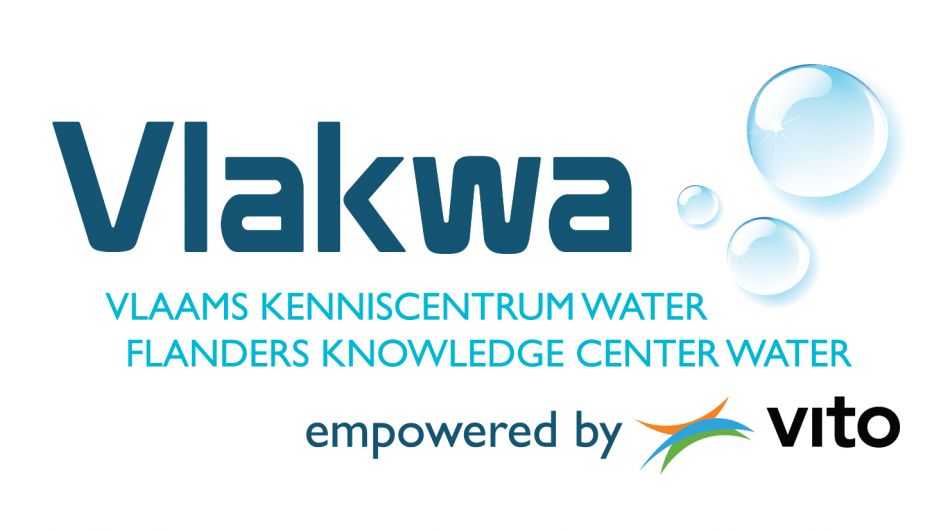To brew one litre of beer, a brewer needs three to no less than 20 litres of water, depending on the type of beer. That's a lot, especially when we know that water is becoming increasingly scarce in Flanders. Fifteen breweries prove, one year after the start of the Green Deal Brewers, that their plans are not a dead letter. They took up the challenge and looked for systems to reuse more water or use less water for the rinsing machines. An overview.
Kortrijk, 7 May 2020 - It looks like we will set drought records again this year. The KMI has informed us: 2020 will be in the list of years of prolonged drought. Groundwater levels are low to very low, which is not good news. Certainly not for our brewers, because brewing beer is inextricably linked to water. Fifteen breweries have committed themselves, from a vision of social responsibility, to working for four years in the Green Deal Brewers to further increase the sustainability of their water use. In this way, they want to contribute to the development of a water system where water is available to everyone as much as possible. From Vlakwa we would therefore like to put these special #FoodHeroes in the spotlight.
To brew beer, you need water. Lots of water. After all, it is not only the main ingredient of beer, but also necessary for certain peripheral processes such as cleaning installations, cooling and steam production. Good quality water is crucial for brewers. They realize that water is not only extremely important, but also increasingly precious. In order to be able to rely on quality water in the future as well, they have been looking for ways to make water use more sustainable for some time now. This can be done by reducing the quantity of water or using alternative water sources, such as recycled water. Only in this way can they reduce the pressure on vulnerable groundwater layers. By stepping into the Green Deal Brewers, they gather knowledge and can test ideas. That pays off...
The Green Deal Brewers was launched at the end of 2018. Fifteen breweries took part in the initiative. They drew up a balance of current water use and prepared an action plan for the next four years, until 2022. In the course of the first year, three learning networks were organised where the brewers exchanged ideas and presented their projects. In this way, they not only gained inspiration about water technologies, but were also able to anticipate to bottlenecks more quickly.
One year after the start of the project, an interim report was made. The measures that brewers have taken in this short period of time are impressive and this is only the beginning. A selection of the actions:
Brewery of Trappists, Westmalle
The first goal the brewery had set itself was already ambitious. In 2017 it was set that the water consumption should decrease from 7 litres of water per litre of beer to 5 litres of water per litre of beer. In order to achieve that goal, in 2017 it commissioned a water reuse plant with reverse osmosis. It uses a membrane to separate very fine particles.
This makes it possible to re-use the purified process water from the existing biological water purification system in the production process. Although this water perfectly meets the drinking water standards, it is not used to brew beer, but it is used in the other processes. Because of this membrane technology, much less groundwater is needed than in the past. As a result, the brewery has achieved its goal with flying colours.
Alken-Maes, Alken
In the past, a lot of water was lost when filling the beer bottles. Brewery Alken-Maes invested 4 million euros in a new, water-saving bottle filler in the Cristal Brewery in Alken. This filler uses 360m3 water per week less than the previous bottle filler at peak times. That means a weekly saving of the contents of seven swimming pools.
Brewery Haacht, Haacht
A lot of water is lost during the cleaning procedure of the process tanks. That is why the Haacht Brewery has installed an intelligent software module to optimise the cleaning procedure of the process tanks and the associated water consumption. The water consumption at the rinsing machine was also mapped out and through smart and effective interventions the brewer succeeded in saving 30 % water locally.
Brewery Huyghe, Melle
"How can you reuse more water? This was the specific challenge for the Huyghe Brewery and it undertook several actions to further optimise the existing water treatment plant for water reuse. For example, an extra buffer tank was installed to make better use of the purified water and rainwater is used. The brewery doubled the capacity of the existing water treatment plant, using membrane filtration and reverse osmosis. These are two types of installations in which particles of different pore sizes can be separated using membranes. As a result of all these measures, more purified process water can be further purified for reuse.
These are not the only initiatives. All breweries in the project are aiming for more sustainable water use. For example, some breweries have started to better monitor the water use in the brewery and another one has appointed an employee who is now further specializing in utilities so that, for example, cooling towers are better regulated with lower water consumption as a result....
Want to know more? Feel free to contact Dirk Halet (dh@vlakwa.be) or 014/33.50.58.
What is the Green Deal Brewers?
The Green Deal Brewers is a voluntary agreement concluded between the Flemish government, individual breweries, vzw Belgische Brouwers, Fevia Vlaanderen and Vlakwa. At the signing of the Green Deal on 6 September 2018, 9 breweries signed up, meanwhile the count of participating breweries is already 15. More info can be found here.



